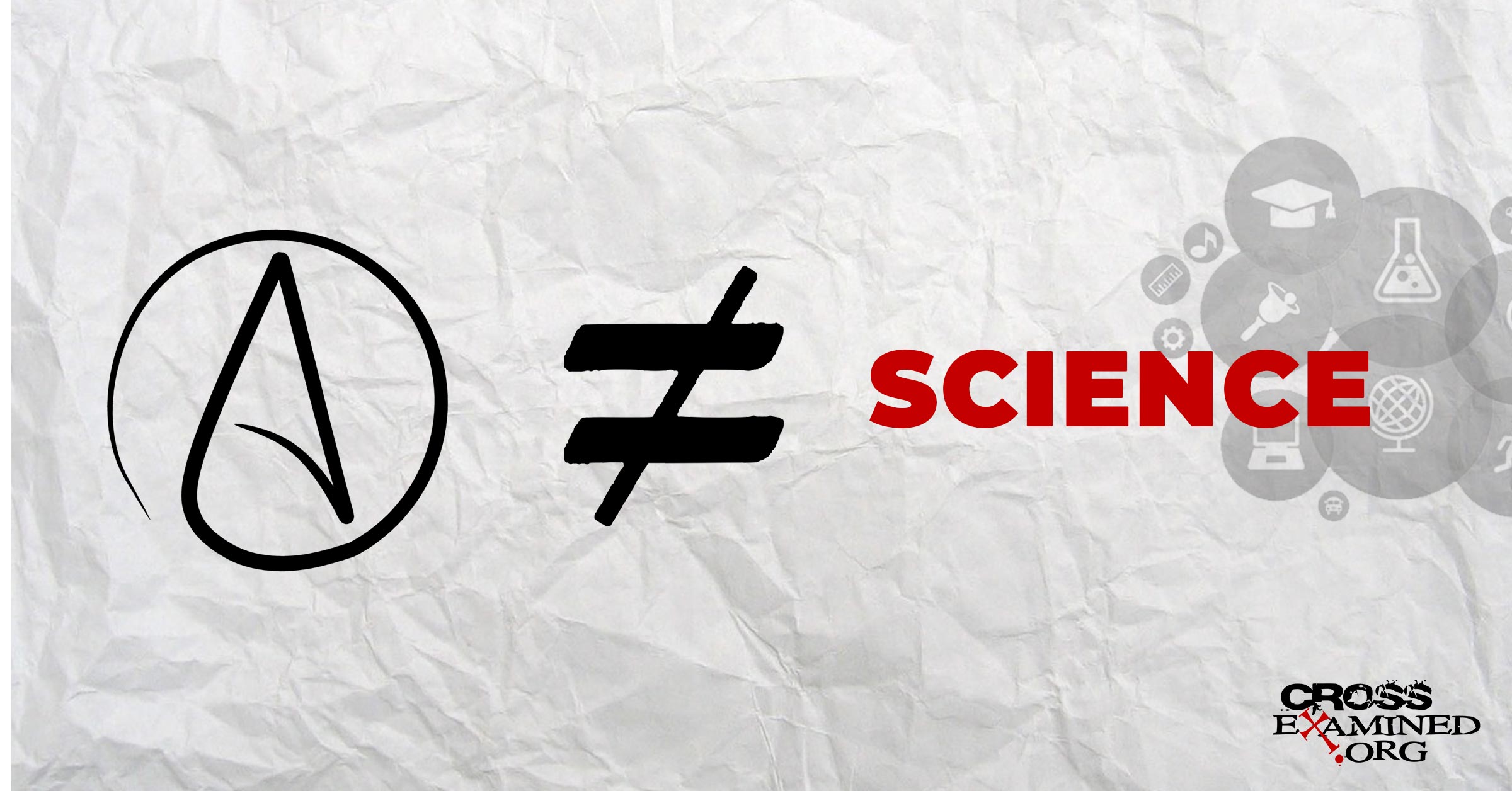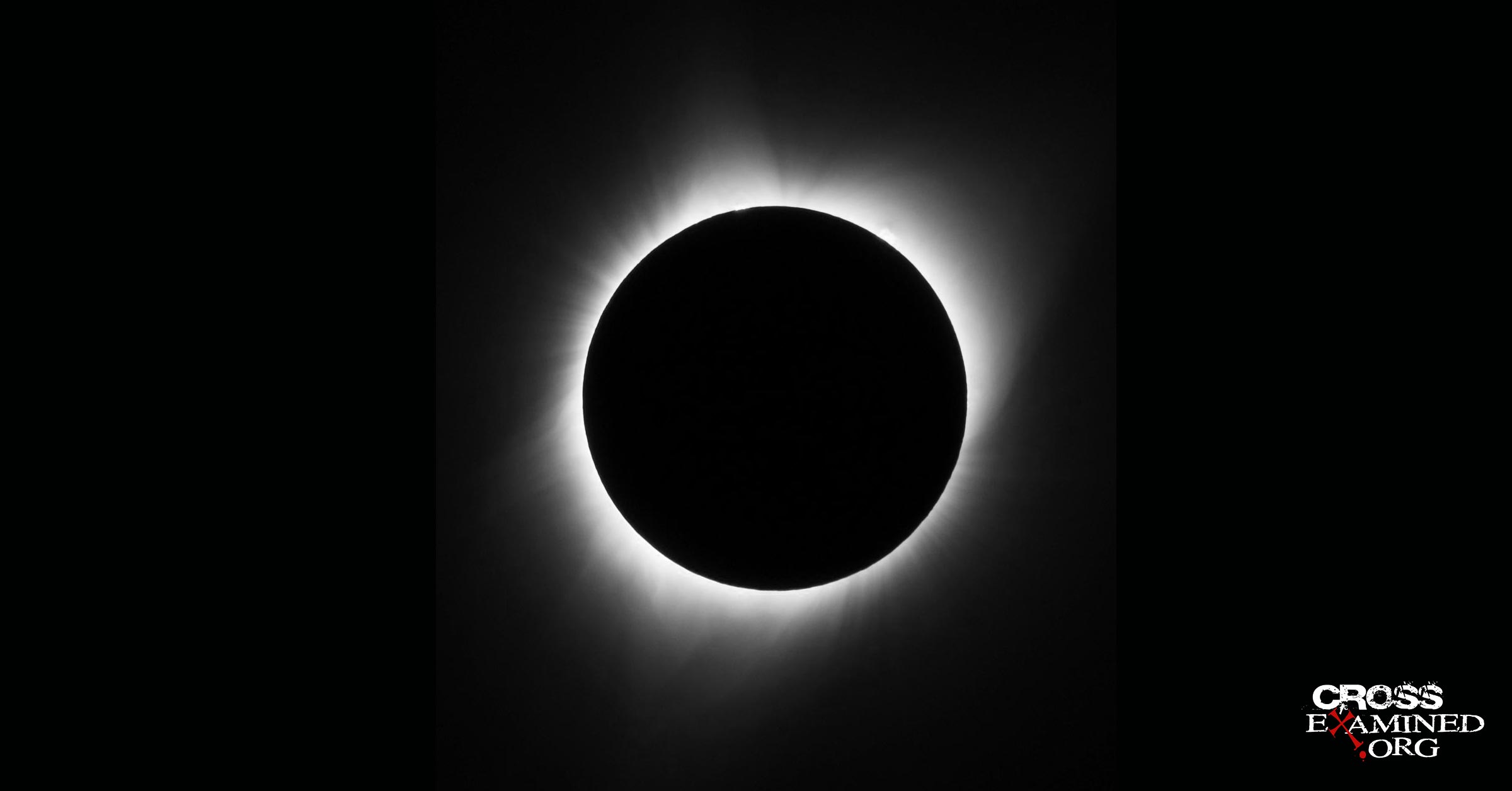6 Ways Atheism Is A Science-Stopper
Introduction: Science vs. Christianity?
It is commonly claimed that Christianity is a science-stopper. What is usually put forth to justify this claim is that many Christians are content to look at nature and say, “God did it,” without looking further to discover how God did whatever “it” happens to be. For many Christians, questions about the origin and function of the natural world end with that answer. However, for many others, while they recognize that God did indeed do something, they seek diligently to discover how God did it. Christianity does not stop science, a lack of curiosity or concern (not necessarily a bad thing if those are not a person’s passion or pursuit) is what could stop science if no Christian exists who possesses that curiosity. Individual Christians can choose to stop scientific discovery for themselves, but because scientific discovery will continue for other individual Christians, scientific discovery will continue.
On the other hand, atheism actually does stop science. Not because an atheist is content to say “evolution did it” and cease exploratory research, but it is stopped rather for a few other reasons that the atheist cannot escape if their worldview is true. If atheism is true, scientific discovery does not cease just for the atheist whose curiosity and concern are satisfied by the answer “evolution did it,” but it ceases for everyone.
If you are a friend of science and an atheist, I implore you to take your thinking to the next level: think about how you can think about the discovery of the world around you. In today’s blog post, I will present six different ways that atheism mutually excludes science and stops all scientific discovery in its tracks.
Science vs. Atheism
The Laws of Mathematics vs. Atheism
A great deal of scientific research done today necessarily depends upon mathematics in its most advanced forms. It is used to describe chemical reactions, model the formation history of the universe, and even predict the spread of viruses. The reason that mathematics can be used in this way is because the universe is beholden to mathematics. This fact makes the universe describable, discoverable, and predictable (to some extent). If the universe produced mathematics, then there is no reason for the universe to adhere to mathematics, and its describability, discoverability, and predictability would not be possible.
This presents a serious problem for the atheist. For on the atheistic view, mathematics is a product of a feature within the universe (the human brain, to be exact), and the universe is not beholden to something it produced. On the atheistic view, mathematics is not objective, so there is no reason that we should expect the world around us to adhere to or be explainable by using mathematics. The present cannot be described; the past cannot be discovered, and future events cannot be predicted.
On the atheistic view, without a super-natural (outside this universe) foundation for mathematics that constrains this universe to its laws, this universe is nonsensical, and the entire scientific enterprise is ultimately doomed to being nothing more than a guessing game and unable to reveal knowledge about any point in time or space.
The Principle of Uniformity vs. Atheism
Similar to mathematics, the principle of uniformity is key to performing scientific research. This principle states that the past acted very much like the present, and the future will act very much like the present. This principle constrains the universe to a continuous connection across time that scientists can use to describe, discover, and predict. Based upon this principle, scientists understand that it is reasonable to extrapolate observations today into both the past and the future. Through this continuous connection, scientists can discover what happened in the past (historical science) with deductive certainty and make predictions about future events in the natural world (this is how different models of natural phenomena are tested- predictions of future discoveries are made based upon different understandings of the presently-observable data).
But also similar to mathematics, this principle cannot simply have come about with the appearance of human brains on the cosmic scene. If this principle is the product of a feature within the universe, then it necessarily cannot be governed by such a principle. Due to that necessary lack of governance, there is also no reason to think that the universe can be explained using the principle of uniformity.
Thus, if we are to continue scientific discovery using this principle and believe that anything discovered using it is true or meaningful, then it must have a foundation prior to this universe. This means that the principle of uniformity, like mathematics, has a transcendent (super-natural) foundation. Without such a foundation, scientific knowledge of the past and prediction of future events are impossible. On this second count, atheism renders scientific discovery dead on arrival.
For more on this, I highly recommend the book “Origin Science: A Proposal For The Creation/Evolution Controversy.”
The Laws of Logic vs. Atheism
Adding onto mathematics and the principle of uniformity are the laws of logic. It is through the laws of logic that we can connect the present to the past and discover the history of our planet, the solar system, the galaxy, the universe, and even the moments up to the creation event itself. But this level of scientific discovery is only possible if the universe is governed by transcendent laws of logic. Deductive reasoning and deductive certainty (mentioned above) are necessarily dependent upon the laws of logic. If the universe is not governed by laws that transcend its own existence, then there is no reason to act as if it is governed by such laws. These laws must have a foundation that exists outside of the natural universe; this means that they must exist super-naturally.
But according to atheism, nothing exists super-naturally, and laws of logic are no exception. Thus the universe is not required to and cannot be expected to follow any such laws on atheism. If we cannot expect the universe to necessarily follow such laws, then we cannot use such laws to make truth claims about the universe with any level of certainty, including its history or future. Without the laws of logic existing outside the universe, every scientific endeavor that attempts to expand our knowledge of the natural world beyond the present moment of observation in the immediate spacial vicinity is futile. Without a reason to believe that this universe is subject to the laws of logic, scientific discovery is impossible. Because atheism has no room for laws of logic that govern this universe, it has no room for claiming legitimate scientific discovery is part of its worldview.
For more on this, I highly recommend these two books:
The Word of God and the Mind of Man
The Laws of Physics vs. Atheism
Atheism, without laws of mathematics and laws of logic, already cannot formulate or describe laws of physics. That is only one of the numerous implications of a worldview devoid of reality beyond this universe. But the problem for atheism regarding the laws of physics goes deeper than merely discovery and articulation. For lack of discovery and/or articulation do not necessarily imply a lack of existence. The lack of existence of laws of physics on the atheistic worldview is established independently, though similarly, to the lack of existence of laws of mathematics and laws of logic.
If there do not exist laws of physics that this universe is governed by, meaning that they are logically prior to or have a foundation outside of this universe, then there is no reason to use said laws of physics in any reasoning (using non-existent laws of logic) from present observations of this universe to the past history (using the non-existent principle of uniformity) of this universe. Again, without foundation outside this universe for laws of physics to govern the universe, this universe is under no constraint to follow any particular description (laws of physics). If atheism is true, science is, for yet another reason, dead on arrival.
Our Sense Organs And The Brain vs. Atheism
Of course, the applicability of the above features of reality does not come into play in scientific discovery until observations are made. While the above features of reality are observer-independent, this last feature is observer-dependent. Not only does atheism have no foundation for the observer-independent features of reality (and necessary features of the scientific enterprise) described above, but its explanation for one observer-dependent necessity of the scientific enterprise undercuts its own reliability.
Atheistic worldviews have only one possible explanation for the appearance of sense organs and the human brain: changes over time that are governed by (non-existent) laws of physics that govern natural selection. This is also known as “unguided evolution” or merely “evolution” in many circles. We must be careful to distinguish here between agent-guided and environment-guided. The “unguided” descriptor here refers to agent-guided. Evolutionists very much believe that evolution was guided, but that guidance was done by the environment and the (non-existent) laws of physics that governed the creation of and behavior of the environment.
With that in mind, this process that is ultimately guided by non-existent laws of physics results in the survival of populations, so features that serve for the survival of populations are what are passed down from generation to generation and remain in existence. In this view, a pragmatic advantage is the determining factor of a feature’s propagation, not truth-discovering abilities. The truth-discovering ability of a feature is purely accidental, and there is no way to independently test the truth-discovering abilities of such features that survived (especially since all the above features of reality, that may be used to independently test, have no foundation in reality if atheism is true). This means that our sense organs and brain have survived, not because of their truth-discovering abilities, but because they helped populations prior survive in their environment. The atheist cannot come around and say that we can independently test our sense organs scientifically via logic, mathematics, the principle of uniformity, or laws of physics because none of those have foundations in reality if atheism is true. If atheism is true, then even those “laws” are the product of our evolved brains, which, again, is the product of a process governed by non-existent laws of mathematics, logic, and physics.
For more on this, I recommend the book “Where The Conflict Really Lies.”
Conclusion
If something does not exist or is not true, it is not a valid launching point for any process of gaining knowledge. If the foundations are compromised, so are the results. If atheism is true…
…science cannot begin with laws of mathematics.
…science cannot begin with the principle of uniformity.
…science cannot begin with laws of logic.
…science cannot begin with laws of physics.
…science cannot begin with our own observations.
…science cannot begin with our own reasoning.
Science necessarily depends upon the reality and truth of these features of reality. If atheism is true, there is no foundation for any of these features of reality. If atheism is true, these are not features of reality, which means that they are neither true nor do they exist. Thus they cannot be launching points of any knowledge discipline, including science. If atheism is true, the scientific enterprise (among other knowledge disciplines) cannot legitimately claim to provide us with the truth about our world. If atheism is true (in whatever form), it is impossible to connect our subjective beliefs to objective reality.
Because atheism mutually excludes science, atheism is no friend of science; and science is no friend of atheism. If you are a friend of science, you know that these six concepts are features of reality and are true. I invite you to abandon the scientifically and philosophically naive worldview of atheism; embrace the reality of the Christian God, the One who provides a firm foundation for every one of these six realities that you already know exist and already depend upon for your scientific discoveries.
Recommended resources related to the topic:
Why Science Needs God by Dr. Frank Turek (DVD and Mp4)
Science Doesn’t Say Anything, Scientists Do by Dr. Frank Turek (DVD, Mp3, and Mp4)
Oh, Why Didn’t I Say That? Does Science Disprove God? by Dr. Frank Turek (DVD and Mp4)
Stealing From God by Dr. Frank Turek (Book)
Luke Nix holds a bachelor’s degree in Computer Science and works as a Desktop Support Manager for a local precious metal exchange company in Oklahoma.
Original Blog Source: https://bit.ly/2Kt7oBy












Leave a Reply
Want to join the discussion?Feel free to contribute!